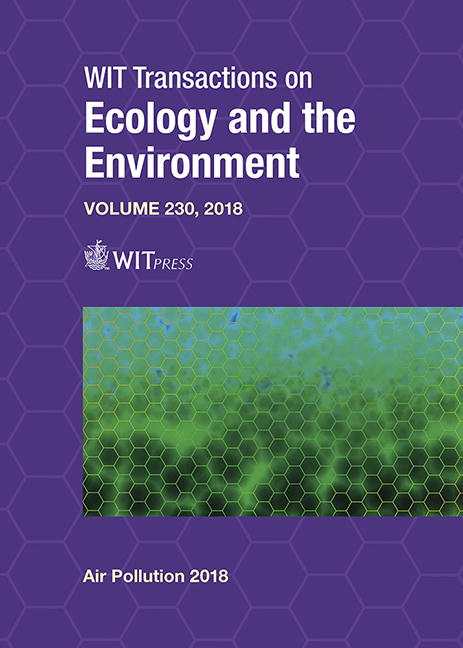THE IMPACTS OF DIESEL-PASSENGER-CAR INCENTIVISATION ON EMISSIONS IN IRELAND: HISTORIC ANALYSIS AND POLICY ASSESSMENT FRAMEWORK
Price
Free (open access)
Transaction
Volume
230
Pages
11
Page Range
141 - 151
Published
2018
Paper DOI
10.2495/AIR180131
Copyright
WIT Press
Author(s)
MD. SANIUL ALAM, PAUL DUFFY, BERNARD HYDE, AONGHUS MCNABOLA
Abstract
An assessment was conducted on the air pollution impact of incentivisation of diesel passenger cars to curb carbon emissions in Ireland. Road transport emission inventory data was obtained from the national COPERT5 model for the years 1990–2016. The underlying variables that represent the current carbon-based taxation scheme and the economy were included in a regression analysis with fleet, fuel and engine size data. This data was used to develop a “what-if” scenario which predicted the result of not incentivising diesel cars in 2008, on road transport emissions up to 2016. The mileage of these segregated fleets was also adjusted with income elasticities. The results show that the difference would be approximately a 5.4% increase of CO2 and 6.4% for PM2.5 in 2016 without the implementation of the 2008 incentives. NH3, CO, NMVOC and CH4 would also have been increased by 50.9% to 61.9%. The nitrogen-based emissions, however, would have reduced by 22.8% for NOx and 19.9% for N2O. The primary reason for the increase of nitrogen-based emissions was a shift in vehicle purchases to smaller engine diesel passenger cars from both petrol and larger engine diesel cars. The CO2 emission contribution of the smaller diesel passenger car fleet is lower in comparison to the most other fleet technologies. Thus, a change in fleet size in this technology will likely to have the most impact on the emission scenario. Using this knowledge of a fleet shift, a framework tool can be developed to control the future fleet composition. The results of this paper highlight that the incentivisation of one source of air pollution over another is a complex matter with varied results. However, it has been shown that this can be optimised to produce the minimum impact from both climate change and air pollution perspectives, where both are considered in detail.
Keywords
air pollution, transport, CO2, emissions modelling, regression





